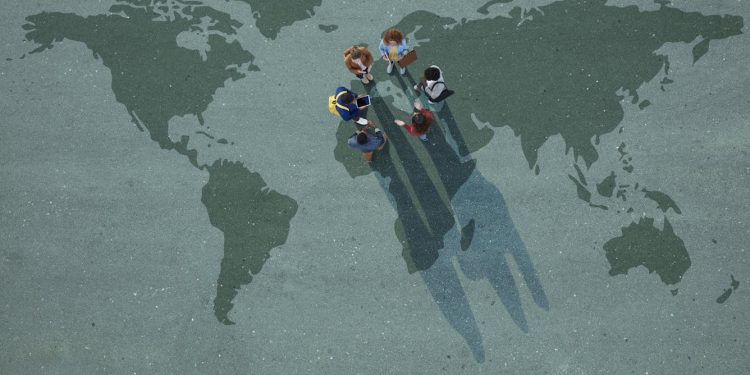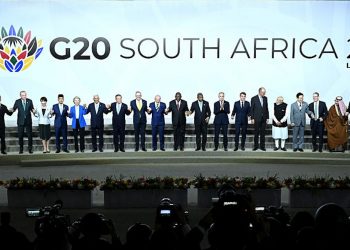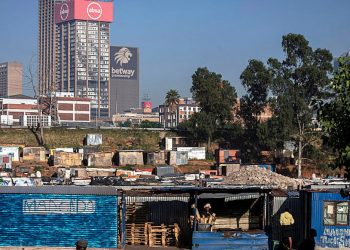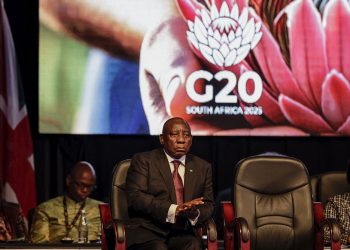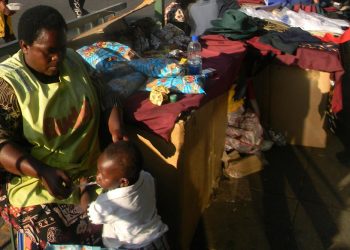It remains too difficult for Africans to travel between African countries. Africa-wide reforms have failed. The keynote continental agreement, the African Union’s Protocol on Free Movement of Persons, adopted in 2018, still has only four country ratifications from 55 members.
A new report of the African Union bemoans the low (though slightly improved) level of human integration in Africa. It describes the main challenges as legal fragmentation, weak institutional frameworks, security concerns, and limited mutual recognition of documents and qualifications.
Nevertheless, some consolation can be drawn from the fact that African migration governance systems have been moving in the right direction.
We are migration researchers and, as we show in our recent report, there has been some progress. This is evident in improving scores in the annual African Visa Openness Index, which is published by the African Development Bank.
The visa openness index shows that for 28% of country‑to-country travel scenarios within Africa, African citizens do not need a visa to cross the border. This is an improvement from 20% in 2016.
But the pace of change is slow. Given this, and the fact that progress has been driven at bilateral and regional levels, is there still a role for continental initiatives?
Based on our research over the last decade, we argue that incremental reforms at all levels – unilateral, bilateral, regional and continental – can combine to move Africa forward towards free regular movement.
We recognise that the implementation of the African Union Protocol on Free Movement of Persons is still some way off. But there are opportunities to support its aims and intentions through incremental initiatives and reforms. This could include pilot programmes run under the auspices of the African Union and regional bodies that provide for categories of people to travel freely. These categories could include, for example, traders at borders or those with professional skills.
What’s standing in the way
There are many reasons a continental process to reform and align migration governance shouldn’t work.
Firstly, the African Union has an extraordinary number of members (55). The European Union has 27. The large number of countries makes any wholesale continental institutional intervention difficult.
Secondly, there are huge levels of inequality both within and between African countries. The richest country in Africa has an income per person on average – taking costs into account – around 53 times higher than the poorest. Large income differences between countries, sometimes coinciding with better judicial systems and social services, make it likely that, whatever the reality, vulnerable residents in the richer country are likely to fear an uncontrolled influx.
Thirdly, the level of institutional development varies hugely between countries. Population registration is very weak in many African countries. Unicef estimated that in 2022, more than half of the unregistered children in the world were African. The Lancet medical journal estimated that in 2021 only one in three deaths in Africa were registered. Systems for issuing identification documents and passports are imperfect. Confidence in other countries keeping good records of citizens and monitoring criminal and terrorist activity are key ingredients of a good migration partnership.
But Africans cannot afford to allow these and other obstacles to diminish the effort towards a fully integrated continent.
In a world of large, competing power blocs, Africa’s fragmentation puts it at a huge disadvantage. In any case, compared with much of the rest of the world, at least Africa is moving in the right direction. It is mostly opening borders, rather than closing them.
The efforts so far
African initiatives to facilitate easier border crossings have a long history.
In 1991, the Abuja Treaty committed Organisation of African Union member states to
establish a common market and gradually remove obstacles to the free movement of persons, goods, services, and capital and the right of residence and establishment.
The African Charter on Human and Peoples’ Rights guarantees the right to free movement of persons. The Migration Policy Framework for Africa and Plan of Action (2018–2030) is a detailed plan for implementing the Free Movement of Persons Protocol.
The 2018 protocol itself explained why freer movement would be beneficial for Africa’s social and economic development. It set up a programme of three phases, from visa-free visits to (eventually) rights to settle, work and start a business.
We noted some evidence that citizens of African countries are often more open to freer movement than their governments are.
Unlike the Free Movement of Persons Protocol, the African Continental Free Trade Agreement (AfCFTA) has been widely ratified and is in the process of implementation. It provides for specific categories of travellers to be allowed free movement in the course of service delivery.
The free movement protocol is, in practice, driven by a few busy staffers in the AU headquarters in Addis Ababa, with some kind external assistance. The AfCFTA is driven by a relatively large, dedicated secretariat with wide support within and beyond Africa.
A more practical way forward
One of the conclusions we have drawn from our research is that a varied approach might work better.
For example, migration expert Amanda Bisong has pointed out that the AfCFTA services protocol makes provision for the visa-free movement of certain categories of professional and business persons. If implemented, this would be a significant continental step towards broader reforms.
We noted previously that such “neo-liberal” or “elitist” reforms could pave the way to broader multilateral reforms, as was the case in South America. The term “neo-liberal migration reform” was coined in South America to refer to visa-free travel for elites, but not for lower-skilled people.
Secondly, informal cross-border traders could be included into the ambit of formality within a specific agreement. Or as an extension of the services protocol of the free trade agreement.
Thirdly, such initiatives could be initiated as pilot programmes under the auspices of the AU and some regional blocs. Their purpose would be to support the free trade agreement services protocol commitment and to formalise informal traders.
Such pilot programmes could include:
-
the implementation of regional agreements on mutual recognition of skills
-
special economic zones with freer movement provisions, or
-
harmonised visa policies for specific categories of persons.
If successful, these models could be scaled up to encourage broader adoption of the AU Free Movement of Persons Protocol.
Countries with weaker institutional capacities should not be left behind in integrating mobility into the implementation of the free trade agreement. Capacity-building programmes, including financial and technical assistance, should be provided to states that struggle with border management, migration governance or digital infrastructure.
We also noted that continental and regional forums to exchange views and experiences in migration policy and practice are important. We recommend more frequent and more focused forums to monitor the implementation of migration reform policies and discuss the systematic deepening of reforms.
Alan Hirsch is a Senior Research fellow at the New South Institute which funded the research on which this article is based.
Victor Amadi is an Affiliate Researcher at the New South Institute, which funded the research on which this article is based.

